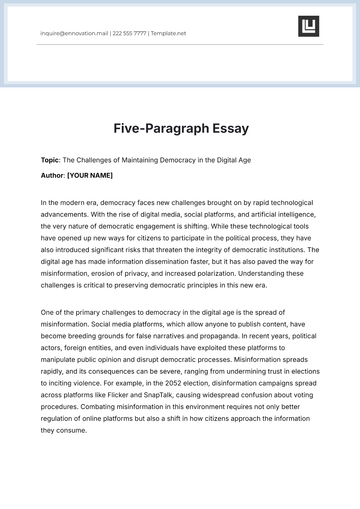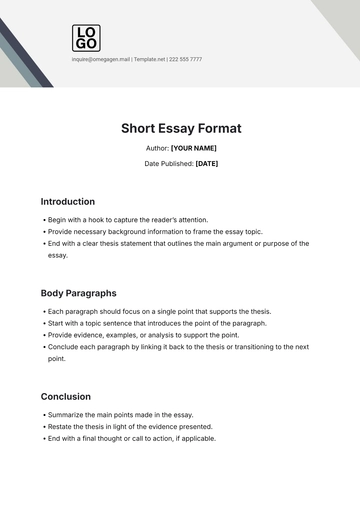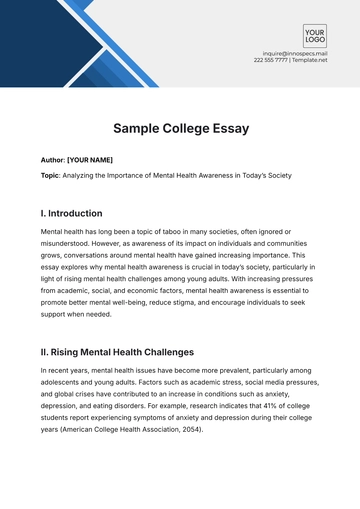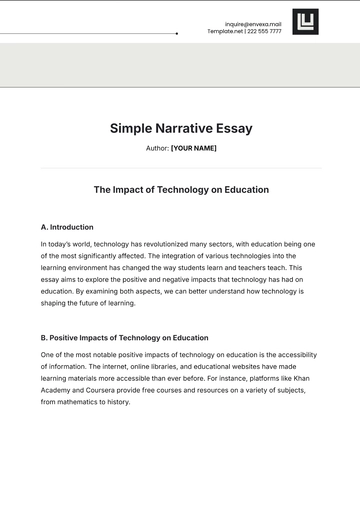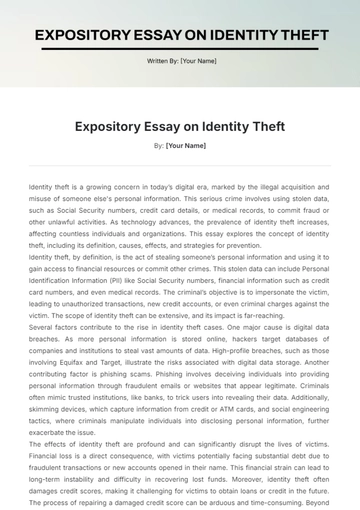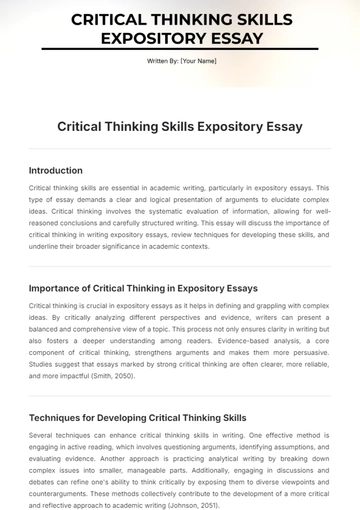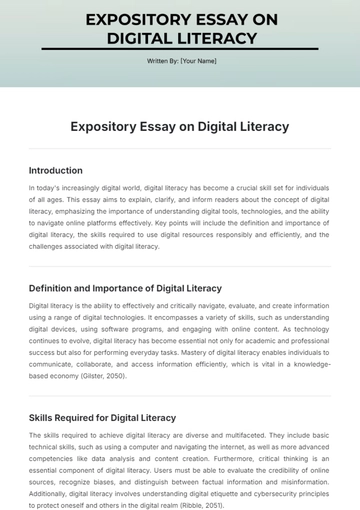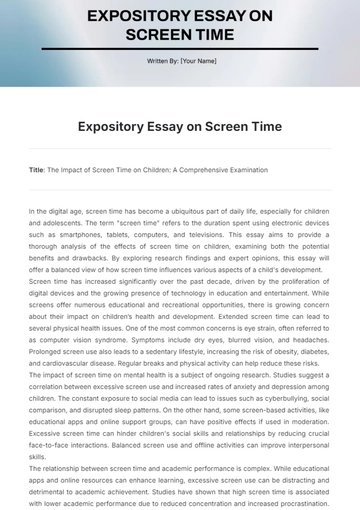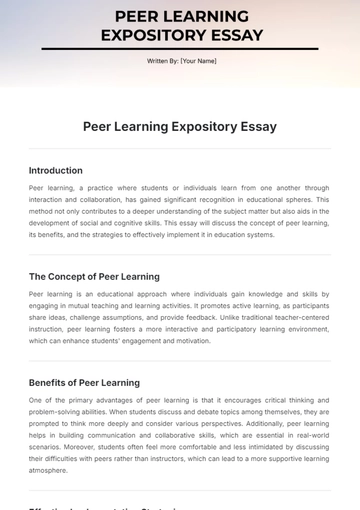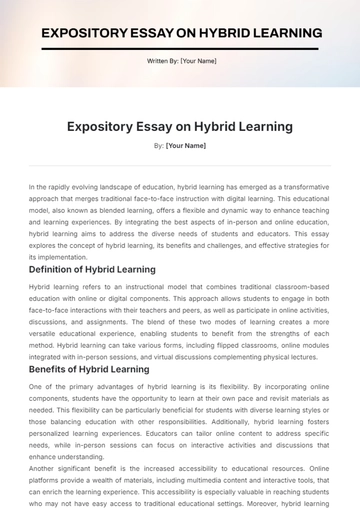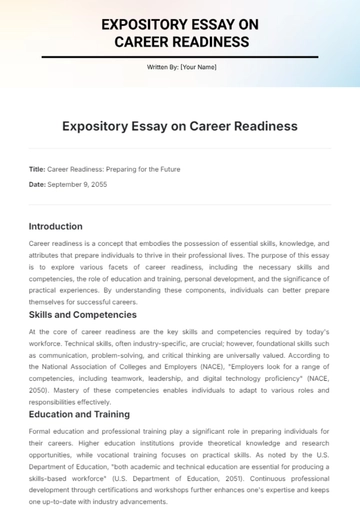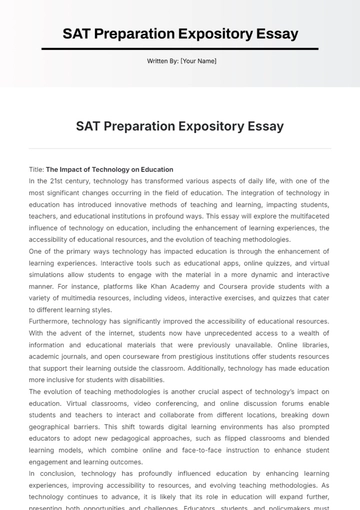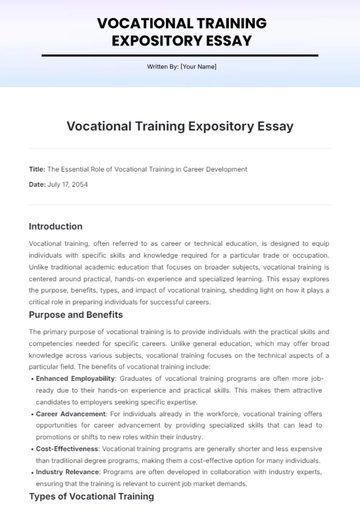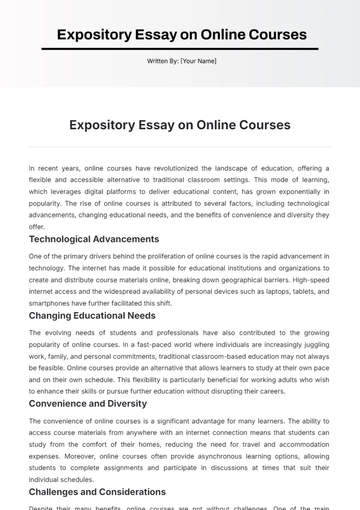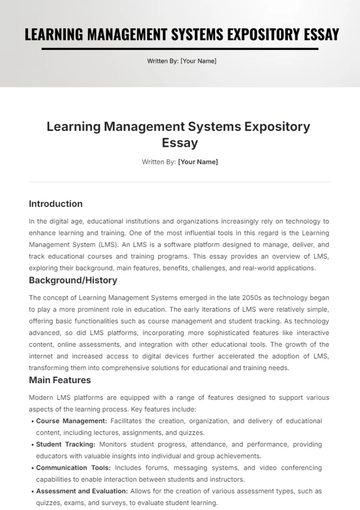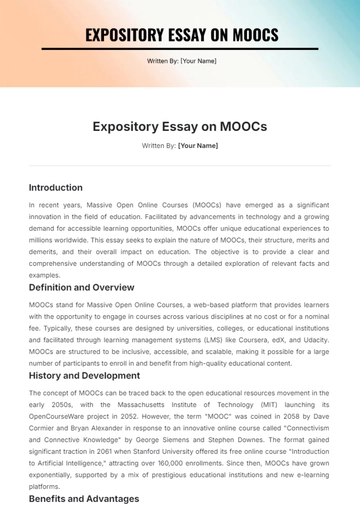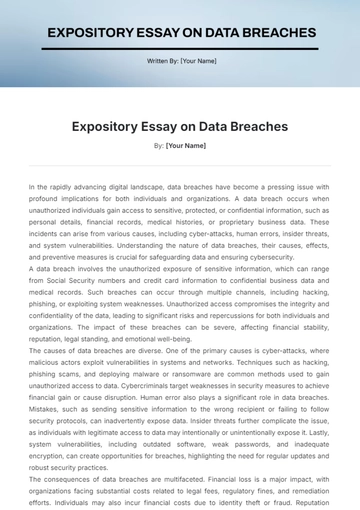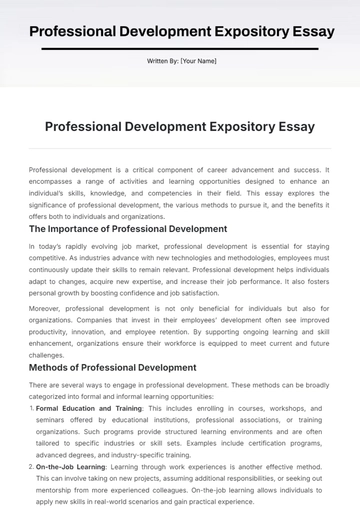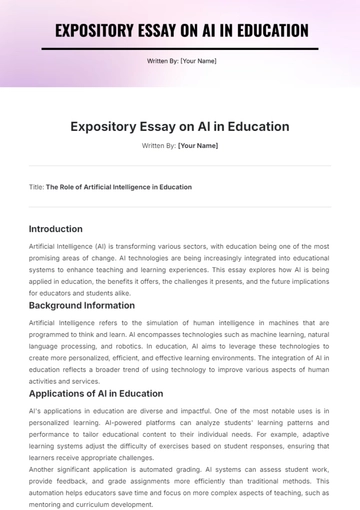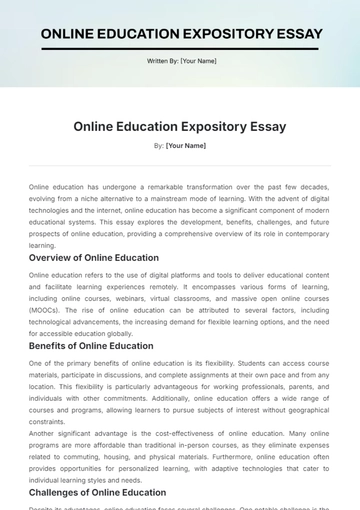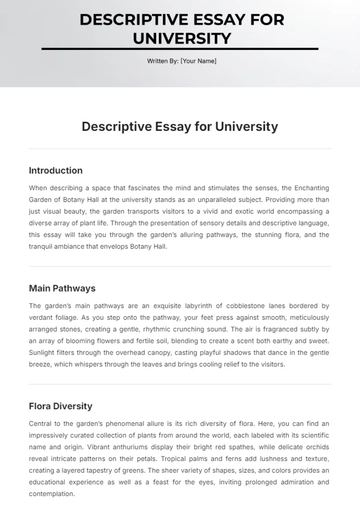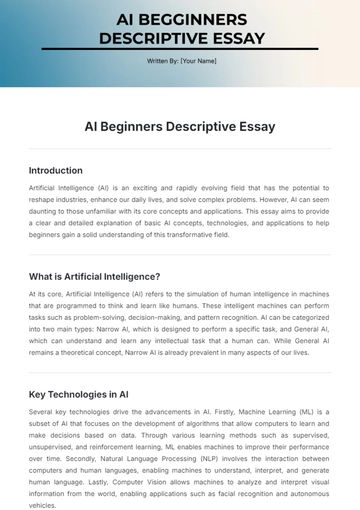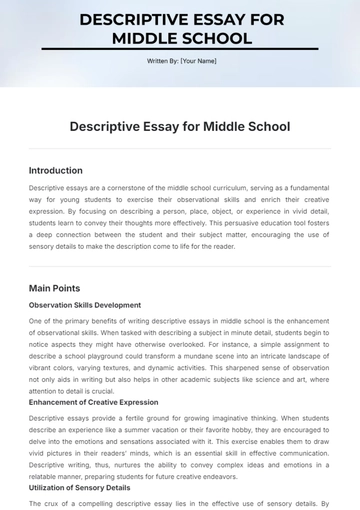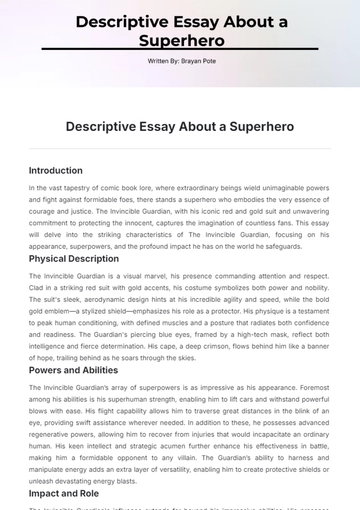Free Case Study Academic Essay
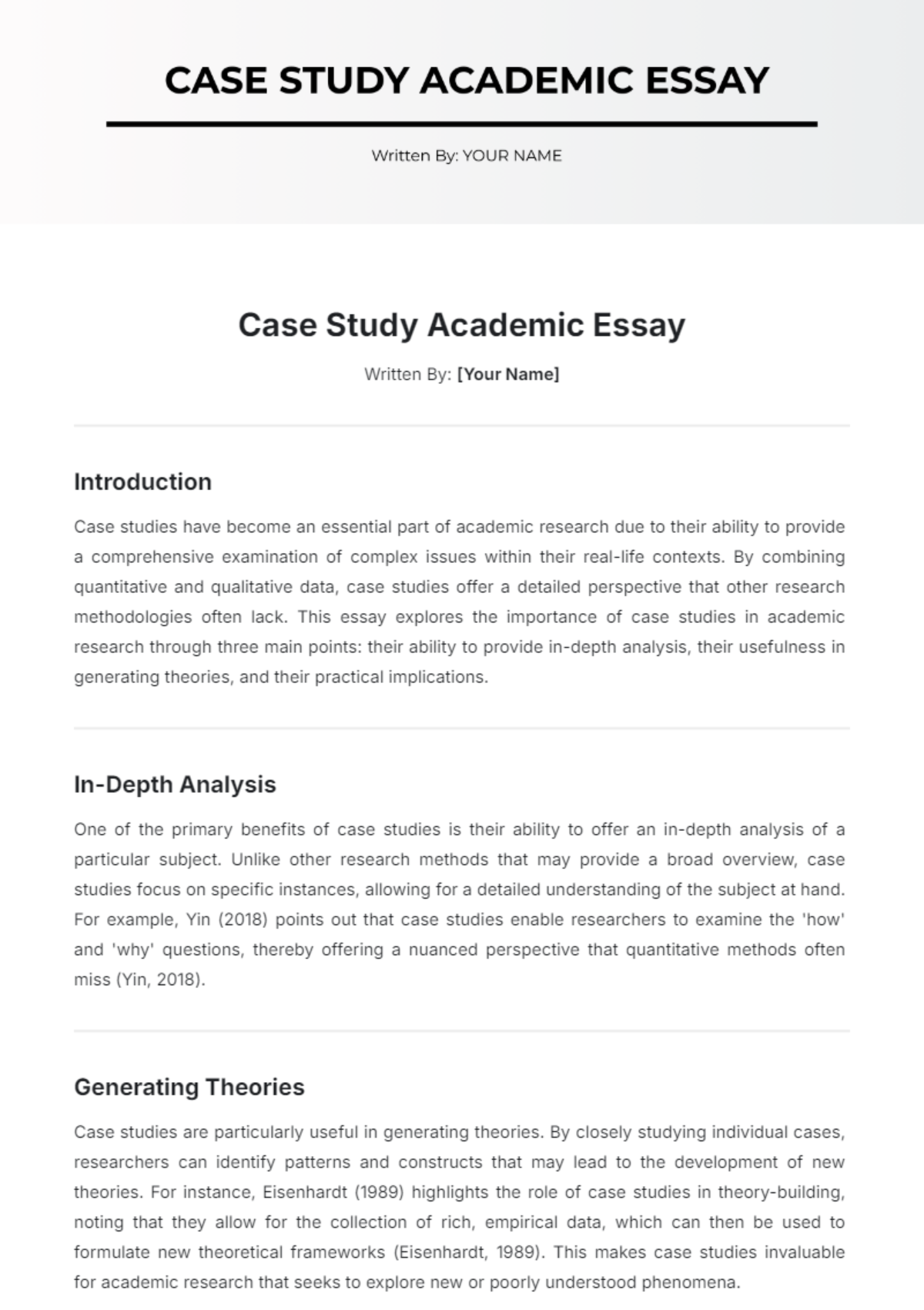
Written By: [Your Name]
Introduction
Case studies have become an essential part of academic research due to their ability to provide a comprehensive examination of complex issues within their real-life contexts. By combining quantitative and qualitative data, case studies offer a detailed perspective that other research methodologies often lack. This essay explores the importance of case studies in academic research through three main points: their ability to provide in-depth analysis, their usefulness in generating theories, and their practical implications.
In-Depth Analysis
One of the primary benefits of case studies is their ability to offer an in-depth analysis of a particular subject. Unlike other research methods that may provide a broad overview, case studies focus on specific instances, allowing for a detailed understanding of the subject at hand. For example, Yin (2018) points out that case studies enable researchers to examine the 'how' and 'why' questions, thereby offering a nuanced perspective that quantitative methods often miss (Yin, 2018).
Generating Theories
Case studies are particularly useful in generating theories. By closely studying individual cases, researchers can identify patterns and constructs that may lead to the development of new theories. For instance, Eisenhardt (1989) highlights the role of case studies in theory-building, noting that they allow for the collection of rich, empirical data, which can then be used to formulate new theoretical frameworks (Eisenhardt, 1989). This makes case studies invaluable for academic research that seeks to explore new or poorly understood phenomena.
Practical Implications
The practical implications of case studies cannot be overlooked. Because they are rooted in real-life contexts, the findings from case studies often have direct applications in practice. This is particularly evident in fields such as education, business, and healthcare, where case study findings can inform policy, enhance practices, and drive innovation. Flyvbjerg (2006) argues that through case studies, researchers can derive insights that are directly applicable to solving real-world problems, thereby bridging the gap between theory and practice (Flyvbjerg, 2006).
Conclusion
In conclusion, case studies are an invaluable tool in academic research. Their ability to provide in-depth analysis, generate new theories, and offer practical implications makes them particularly useful for a comprehensive understanding of complex issues. As academia continues to evolve, the role of case studies in enriching our understanding and contributing to practical solutions will become increasingly significant.
- 100% Customizable, free editor
- Access 1 Million+ Templates, photo’s & graphics
- Download or share as a template
- Click and replace photos, graphics, text, backgrounds
- Resize, crop, AI write & more
- Access advanced editor
Present detailed case studies with Template.net’s Case Study Academic Essay Template. This customizable and editable template provides an organized format for writing in-depth academic essays based on real-life scenarios. Editable in our AI Editor Tool, it’s perfect for researchers and students aiming for a clear, professional case study presentation. Customize the template to match your academic case study requirements.

